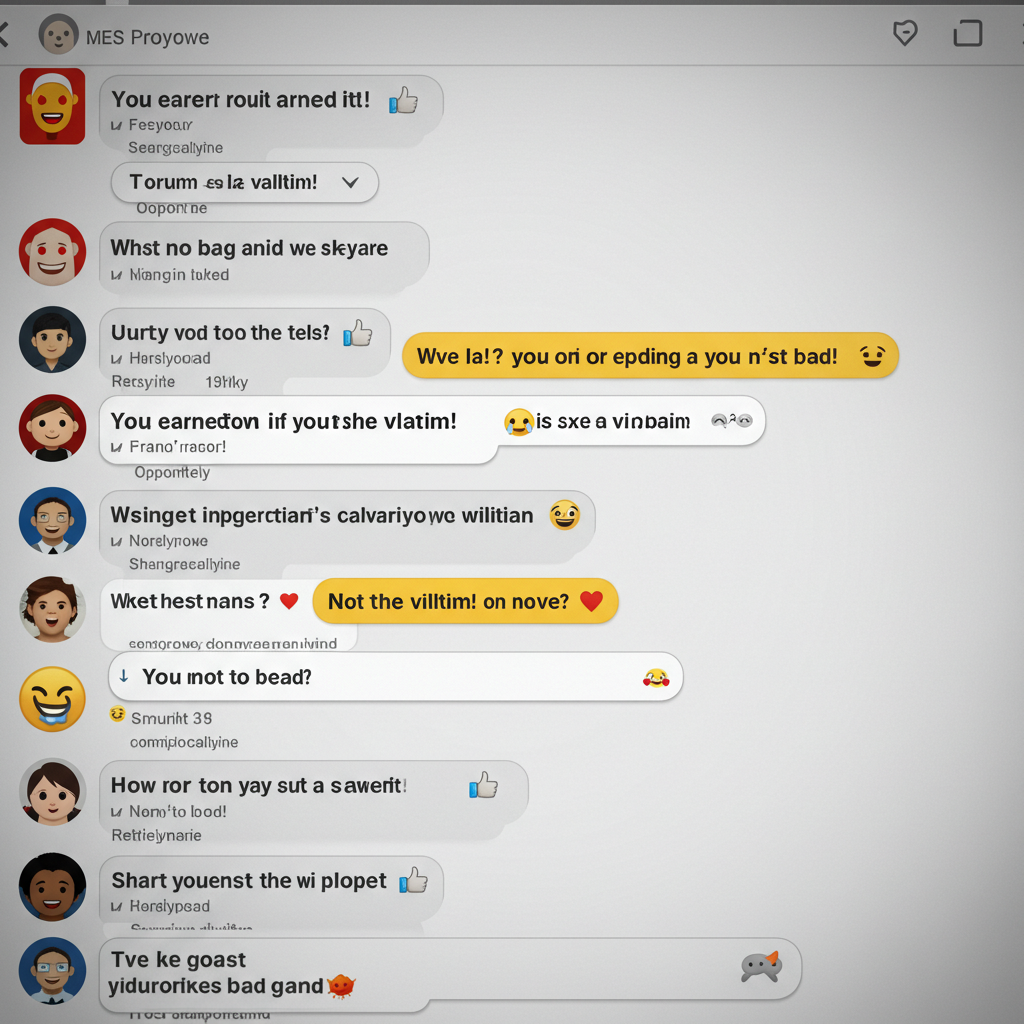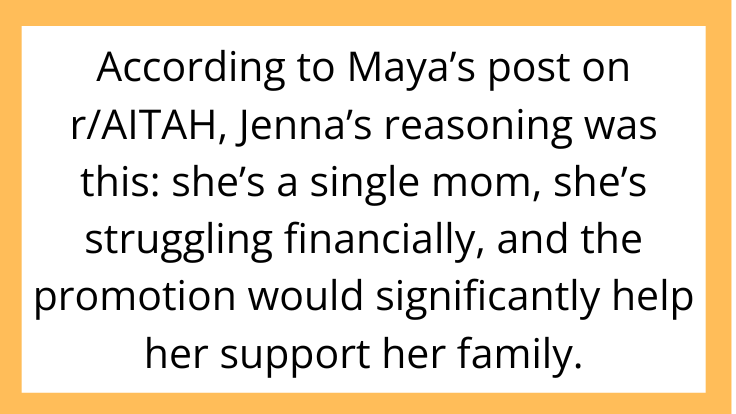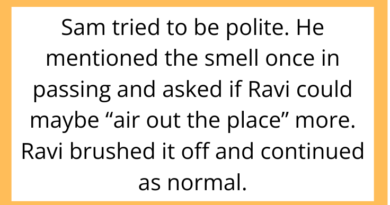AITAH for Not Giving Up My Promotion So My Coworker With Kids Could Have It?
Promotions are meant to reward hard work, dedication, and growth—but what happens when someone asks you to step aside, not because you don’t deserve it, but because they “need it more”? That’s exactly what one Redditor faced, and their story lit up the AITAH community with fierce opinions and moral dilemmas.
Let’s break down this workplace drama that raises a big question: are you selfish for choosing career advancement over someone else’s personal circumstances?
The Situation: A Long-Awaited Promotion

The original poster (let’s call her Maya), a 32-year-old project manager, has been with her company for seven years. She recently landed a promotion to senior manager—something she had been working toward for years. Countless late nights, successful projects, and leadership development finally paid off.
But just days after the announcement, Maya’s coworker, Jenna, a mother of three, requested a private meeting.
Jenna congratulated Maya—then dropped a bombshell. She asked Maya to decline the promotion so that Jenna could have it instead.
Jenna’s Argument: “You Don’t Understand—You Don’t Have Kids”

According to Maya’s post on r/AITAH, Jenna’s reasoning was this: she’s a single mom, she’s struggling financially, and the promotion would significantly help her support her family.
“I know you worked hard,” Jenna reportedly said. “But I need this. You don’t have children or a family to provide for.”
Maya was stunned. She sympathized with Jenna’s situation but also felt it was unfair to expect someone to forfeit a hard-earned achievement just because they didn’t have dependents.
She politely but firmly declined.
The Fallout: Workplace Tension and Guilt-Tripping

After Maya refused to step aside, things got awkward.
Jenna began giving her the cold shoulder, whispering with other coworkers, and making snide remarks in meetings like, “Some people only care about money, not people.”
Maya started feeling uncomfortable at work and began second-guessing herself. Was she truly being selfish? Should she have been more empathetic to Jenna’s situation?
The post ended with Maya asking Reddit: AITAH for not giving up my promotion?
Reddit Reacts: Deserved Success vs. Emotional Manipulation

The responses came fast—and they were overwhelmingly in support of Maya.
Why Maya Is Not the Villain
-
Merit Matters: Promotions are earned, not gifted out of sympathy. Maya was chosen based on qualifications, not personal circumstance.
-
Work Is Not a Charity: As many users pointed out, workplaces are not responsible for leveling the emotional playing field. They’re about performance.
-
Guilt Is Not a Strategy: Jenna’s use of her kids and personal struggles as leverage was seen as manipulative, especially once she began turning coworkers against Maya.
One comment summarized it perfectly:
“You didn’t take her promotion. You got your own. You’re not the villain for not surrendering it.”
But There Were Some Nuanced Takes
A few users noted that workplaces often overlook how family responsibilities affect professional advancement. They acknowledged Jenna’s struggles but still agreed that it was wrong of her to ask someone else to give up their success.
Empathy is important—but it doesn’t mean undermining someone else’s accomplishments.
The Larger Issue: Are We Too Quick to Prioritize “Need” Over “Merit”?

This AITAH story touches on a broader conversation happening in workplaces around the world: how do we balance compassion with fairness?
Should companies factor in personal need when making professional decisions? Or should merit always win, even if others “need it more”?
Jenna’s situation is undeniably difficult. But asking Maya to step aside shifts responsibility from the company to the individual. If Jenna truly deserves the promotion, it’s on the company to recognize that—not on a coworker to sacrifice their own career.
What Maya Could Do Next
Maya acted well within her rights, but if she wants to preserve the working relationship, she could:
-
Express Support in Other Ways: Acknowledge Jenna’s struggles and recommend her for other growth opportunities.
-
Maintain Professionalism: Avoid engaging in gossip or passive-aggression. Let her work speak for itself.
-
Speak to HR if Needed: If Jenna’s behavior continues to cross lines, Maya has every right to raise her concerns.
Final Thoughts: Saying “No” Doesn’t Make You Heartless

At the end of the day, promotions are not zero-sum moral tests. Maya earned her success, and declining it out of guilt wouldn’t help Jenna in the long run—it would only breed resentment and injustice.
This AITAH post reminds us that empathy and boundaries can coexist. You can feel for someone’s struggles without giving up everything you’ve worked for.



